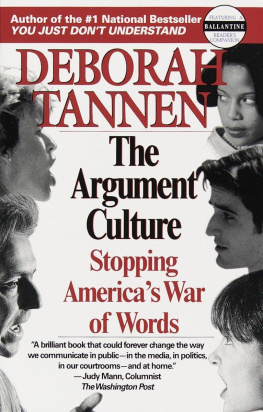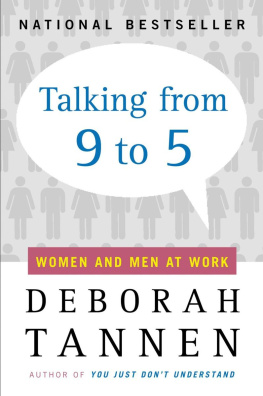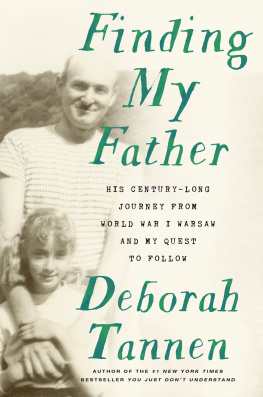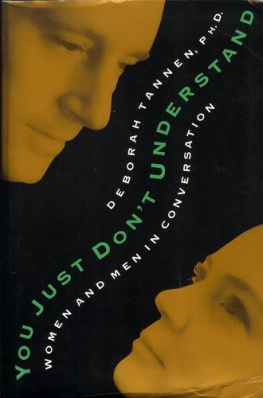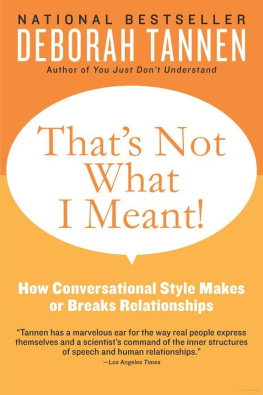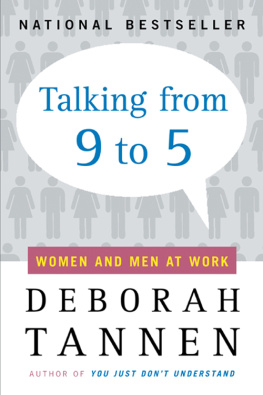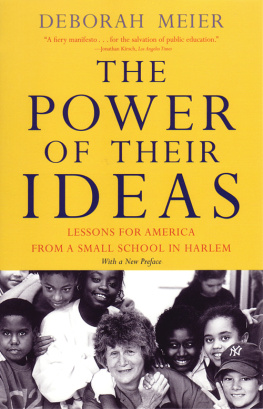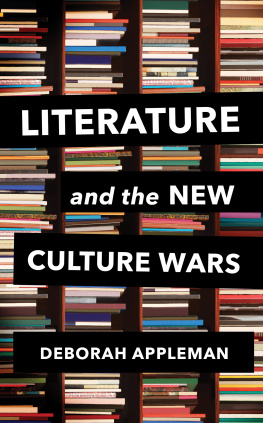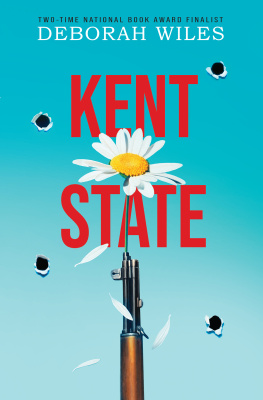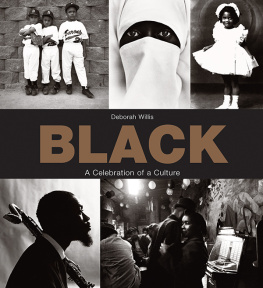Deborah Tannen - The Argument Culture: Stopping America’s War of Words
Here you can read online Deborah Tannen - The Argument Culture: Stopping America’s War of Words full text of the book (entire story) in english for free. Download pdf and epub, get meaning, cover and reviews about this ebook. year: 0, publisher: Ballantine Books, genre: Politics. Description of the work, (preface) as well as reviews are available. Best literature library LitArk.com created for fans of good reading and offers a wide selection of genres:
Romance novel
Science fiction
Adventure
Detective
Science
History
Home and family
Prose
Art
Politics
Computer
Non-fiction
Religion
Business
Children
Humor
Choose a favorite category and find really read worthwhile books. Enjoy immersion in the world of imagination, feel the emotions of the characters or learn something new for yourself, make an fascinating discovery.
- Book:The Argument Culture: Stopping America’s War of Words
- Author:
- Publisher:Ballantine Books
- Genre:
- Year:0
- Rating:4 / 5
- Favourites:Add to favourites
- Your mark:
- 80
- 1
- 2
- 3
- 4
- 5
The Argument Culture: Stopping America’s War of Words: summary, description and annotation
We offer to read an annotation, description, summary or preface (depends on what the author of the book "The Argument Culture: Stopping America’s War of Words" wrote himself). If you haven't found the necessary information about the book — write in the comments, we will try to find it.
The Argument Culture: Stopping America’s War of Words — read online for free the complete book (whole text) full work
Below is the text of the book, divided by pages. System saving the place of the last page read, allows you to conveniently read the book "The Argument Culture: Stopping America’s War of Words" online for free, without having to search again every time where you left off. Put a bookmark, and you can go to the page where you finished reading at any time.
Font size:
Interval:
Bookmark:
With the empathy of a therapist and the authority of a linguistics professor, Tannen stretches her scholarship further onward. In her trademark clear, well-organized style, and generously using examples from her own life, Tannen moves from arena to arena, backing her thesis with plenty of research.
Entertainment Weekly
Her chapter tracing styles of argument across cultural lines is a well-reasoned examination not only of differences between societies but of ethnic differences within our own society.
The Washington Post Book World
Tannens obvious passion for helping people understand one another is well served here by her clear, direct writing.
Publishers Weekly
[Tannen has] an uncanny knack for analyzing communication breakdowns. She makes a strong case for integrating multiple viewpoints as ultimately a more fruitful way to get at the truth.
Elle
Tannen is a fine, crisp writer and very skillful in succinctly synthesizing her material and advancing her argument.
Kirkus Reviews
Highly recommended.
Library Journal
Tannens book is a wake-up call to Americans that words can and do hurt us and that we need to understand this and do something about it.
Common Boundary
[An] insightful and unique book.
Audiofile
Tannen is an engaging, articulate and sensitive writer.
The Baltimore Sun

A Ballantine Book
Published by The Random House Publishing Group
Copyright 1998 by Deborah Tannen
Reading group guide copyright 1999 by The Random House Publishing Group, a division of Random House, Inc.
All rights reserved.
Published in the United States by Ballantine Books, an imprint of The Random House Publishing Group, a division of Random House, Inc., New York, and simultaneously in Canada by Random House of Canada Limited, Toronto.
Ballantine and colophon are registered trademarks of Random House, Inc.
Owing to space limitations, all acknowledgments of permission to reprint material are on , which constitute an extension of the copyright page.
www.ballantinebooks.com
Library of Congress Catalog Card Number: 98-96662
eISBN: 978-0-307-76553-6
This edition published by arrangement with Random House, Inc.
v3.1
This is not another book about civility. Civility suggests a superficial, pinky-in-the-air veneer of politeness spread thin over human relations like a layer of marmalade over toast. This book is about a pervasive warlike atmosphere that makes us approach public dialogue, and just about anything we need to accomplish, as if it were a fight. It is a tendency in Western culture in general, and in the United States in particular, that has a long history and a deep, thick, and farranging root system. It has served us well in many ways but in recent years has become so exaggerated that it is getting in the way of solving our problems. Our spirits are corroded by living in an atmosphere of unrelenting contentionan argument culture.
The argument culture urges us to approach the worldand the people in itin an adversarial frame of mind. It rests on the assumption that opposition is the best way to get anything done: The best way to discuss an idea is to set up a debate; the best way to cover news is to find spokespeople who express the most extreme, polarized views and present them as both sides; the best way to settle disputes is litigation that pits one party against the other; the best way to begin an essay is to attack someone; and the best way to show youre really thinking is to criticize.
Our public interactions have become more and more like having an argument with a spouse. Conflict cant be avoided in our public lives any more than we can avoid conflict with people we love. One of the great strengths of our society is that we can express these conflicts openly. But just as spouses have to learn ways of settling their differences without inflicting real damage on each other, so we, as a society, have to find constructive ways of resolving disputes and differences. Public discourse requires making an argument for a point of view, not having an argumentas in having a fight.
The war on drugs, the war on cancer, the battle of the sexes, politicians turf battlesin the argument culture, war metaphors pervade our talk and shape our thinking. Nearly everything is framed as a battle or game in which winning or losing is the main concern. These all have their uses and their place, but they are not the only wayand often not the best wayto understand and approach our world. Conflict and opposition are as necessary as cooperation and agreement, but the scale is off balance, with conflict and opposition overweighted. In this book, I show how deeply entrenched the argument culture is, the forms it takes, and how it affects us every daysometimes in useful ways, but often creating more problems than it solves, causing rather than avoiding damage. As a sociolinguist, a social scientist, I am trained to observe and explain language and its role in human relations, and that is my biggest job here. But I will also point toward other ways for us to talk to each other and get things done in our public lives.
My interest in the topic of opposition in public discourse intensified in the years following the publication of You Just Dont Understand, my book about communication between women and men. In the first year I appeared on many television and radio shows and was interviewed for many print articles in newspapers and magazines. For the most part, that coverage was extremely fair, and I wasand remainindebted to the many journalists who found my ideas interesting enough to make them known to viewers, listeners, and readers. But from time to timemore often than I expectedI encountered producers who insisted on setting up a television show as a fight (either between the host and me or between another guest and me) and print journalists who made multiple phone calls to my colleagues, trying to find someone who would criticize my work. This got me thinking about what kind of information comes across on shows and in articles that take this approach, compared to those that approach topics in other ways.
At the same time, my experience of the academic world that had long been my intellectual home began to change. For the most part, other scholars, like most journalists, were welcoming and respectful in their responses to my work, even if they disagreed on specific points or had alternative views to suggest. But about a year after You Just Dont Understand became a best-sellerthe wheels of academia grind more slowly than those of the popular pressI began reading attacks on my work that completely misrepresented it. I had been in academia for over fifteen years by then, and had valued my interaction with other researchers as one of the greatest rewards of academic life. Why, I wondered, would someone represent me as having said things I had never said or as having failed to say things I had said?
The answer crystallized when I put the question to a writer who I felt had misrepresented my work: Why do you need to make others wrong for you to be right? Her response: Its an argument! Aha, I thought, that explains it. When youre having an argument with someone, your goal is not to listen and understand. Instead, you use every tactic you can think ofincluding distorting what your opponent just saidin order to win the argument.
Font size:
Interval:
Bookmark:
Similar books «The Argument Culture: Stopping America’s War of Words»
Look at similar books to The Argument Culture: Stopping America’s War of Words. We have selected literature similar in name and meaning in the hope of providing readers with more options to find new, interesting, not yet read works.
Discussion, reviews of the book The Argument Culture: Stopping America’s War of Words and just readers' own opinions. Leave your comments, write what you think about the work, its meaning or the main characters. Specify what exactly you liked and what you didn't like, and why you think so.

